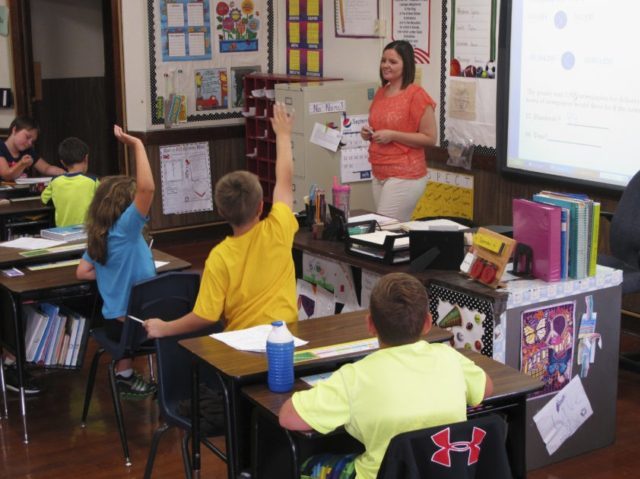U.S. Parents Involved in Education (USPIE) has released an email newsletter in which the group warns parents that children need to be protected in school from both the content of what is being taught and from the collection of their private data.
The national parents’ group – which grew out of the anti-Common Core movement – advises parents:
PROTECT YOUR CHILDREN & KNOW THE ISSUES:
- Many states have claimed to repeal Common Core, but did not.
- Common Core for babies is rampant in the Birth to Age Five age group.
- Assessments are happening all the time, including surveys, and parents are not always notified.
- Assessment & surveys are a means to collect your child’s personal data, which can be shared widely outside the school system itself.
- You have the right to opt your child out of bad lessons and assessments, but many schools make it very difficult. Know your rights.
- New lessons in Social Emotional Learning are being imposed on children.
Posted by Stop Fed Ed National Campaign on Friday, August 24, 2018
“Ask to see all lesson plans outlined on a syllabus,” USPIE urges, adding:
Find out everything that they read in class, including digital books. This is your supreme court protected right and you can opt them out of any material you feel is inappropriate. Things to look for include materials that favor international and globalism over American sovereignty, revisionist history, social justice issues as early as kindergarten, religious bias like Access Islam, sexually charged materials, and sustainable development.
The group also advises parents to instruct their children “to decline any and all surveys given in class.”
“Refuse all behavioral and psychological profiles,” USPIE asserts. “Put this in writing. This is protected under the Hatch Amendment.”
“Read the fine print on everything before you sign it,” the group continues. “Do not disclose any information that you do not want shared. Protect your child’s data from unnecessary collection.”
Finally, USPIE encourages parents to “volunteer to see what is happening in the classroom and on the playground.”
“Go observe for yourself and know what curriculum is being used,” the group advises. “Also determine what is happening at your school regarding bullying.”
USPIE recently published a statement criticizing the Trump administration’s proposal to merge the Departments of Education and the Workforce under the guise of reducing the federal footprint.
The group states the plan would further embed the federal government in education as it also would rely on the collection of more private student data under the innocuous-sounding labels of “social and emotional learning” and “personalized learning.”
“The mission of USPIE is to close the US Department of Education (USED) and end all Federal education mandates,” the group explains. “The merger proposed by President Trump’s Office of Management and Budget (OMB) to combine the Federal Education and Labor Departments directly contradicts USPIE’s primary goal.”
USPIE joined a chorus of constitutionalists in its opposition to “all efforts to convert American education into a workforce development system and opposes enabling massive data collection of citizens, especially children, facilitated and coordinated by the Federal government.”
“USPIE believes the effort to make this dramatic conversion through government schools is misunderstood by most Americans and nearly all elected officials,” the group asserts.
Jane Robbins, senior fellow at American Principles Project (APP), asks at Truth in American Education whether parents are aware of the amount of personal data being collected on their children.
Children today, Robbins observes, are “acclimated to losing any expectation of privacy” and are operating in an atmosphere in which “privacy is downgraded in the name of developing the ‘whole child.’”
She continues:
In the name of “personalized” and “social-emotional” learning, students are required to interact with sophisticated software that vacuums up enormous amounts of data about not only their knowledge, but their mindsets and attitudes. Some of this software comes in the form of video games, which gather sensitive data while heightening the propensity toward addiction. (In Georgia, even the youngest schoolchildren are put on video games as a means of “assessment.”) Digital software uses the data to create algorithms that predict a child’s future behavior, capabilities, or accomplishment based on analyzing his keystrokes. The federal government even touts software that observes students’ physiological reactions to a lesson and feeds that data into the algorithms. Some schools are buying apps that allow constant surveillance and sharing of information about students’ emotional states. And there is little or no control over what technology vendors do with this data, or to whom they might sell it.
“The days when students’ personal information was off-limits to prying eyes – and when American literature meant American literature — are over,” Robbins asserts. “Can the same be said of common sense?”

COMMENTS
Please let us know if you're having issues with commenting.